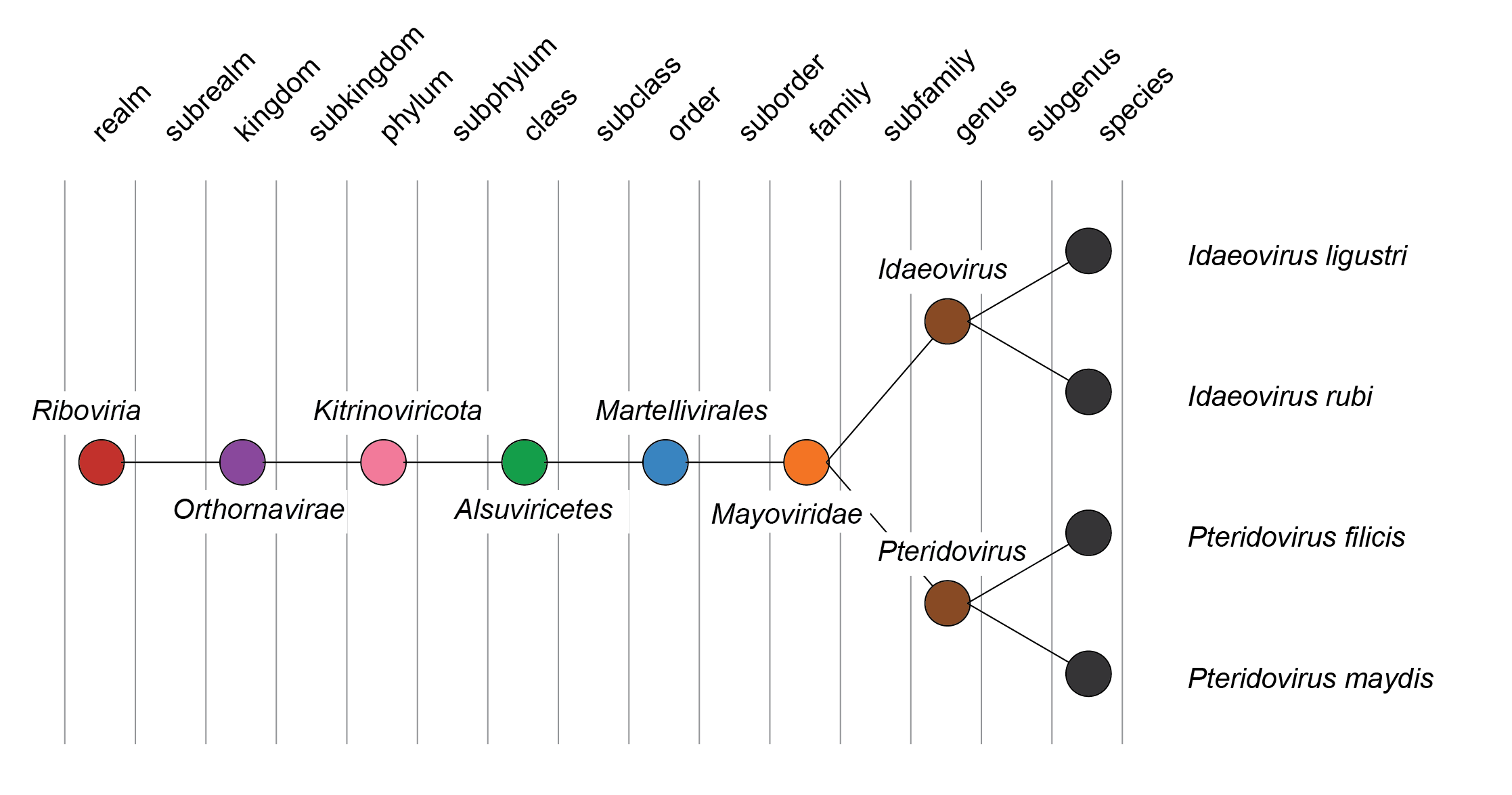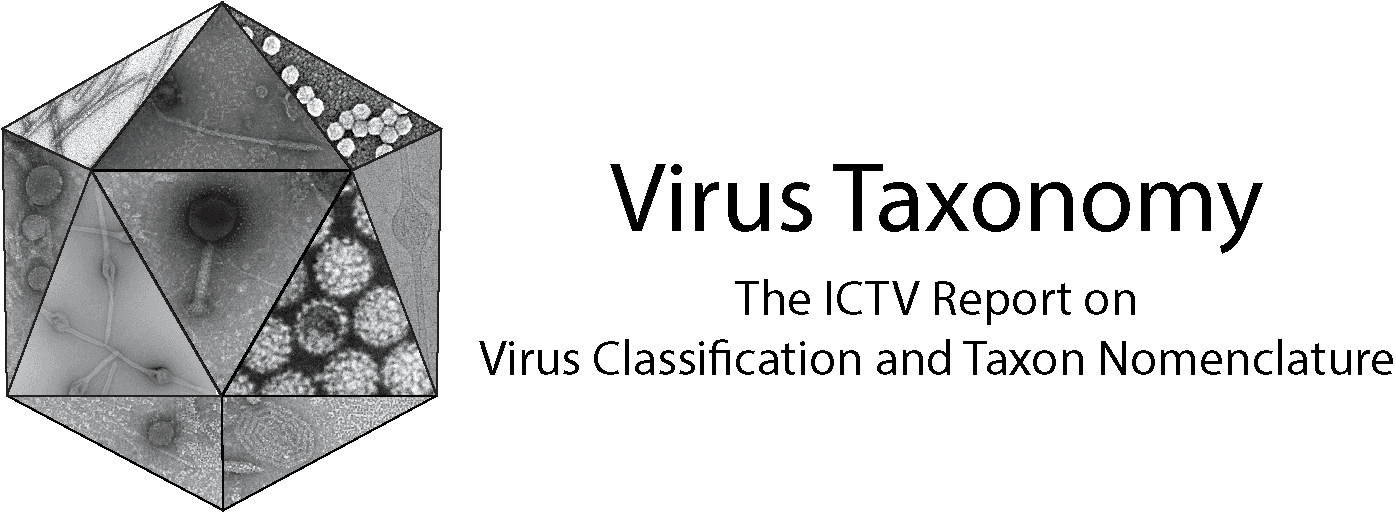Family: Mayoviridae (Interim Report)
This is a summary page created by the ICTV Report Editors using information from associated Taxonomic Proposals and the Master Species List.
Edited by: Luisa Rubino
Posted: October 2024, updated December 2024
Summary
The family Mayoviridae includes ssRNA(+) viruses of plants (Table 1 Mayoviridae). The genomes are bisegmented. The family Mayoviridae was established in 2020 (Master Species List #35).
Table 1 Mayoviridae. Characteristics of members of the family Mayoviridae.
| Characteristic | Description |
| Example | privet leaf blotch-associated virus (RNA1: LT221868; RNA2: LT221869), species Idaeovirus ligustri, genus Idaeovirus |
| Virion | Non-enveloped, icosahedral (Figure 1 Mayoviridae) |
| Genome | ssRNA(+), bi-segmented not polyadenylated (Figure 2 Mayoviridae) |
| Replication | Cytoplasmic, dsRNA intermediate, genome and subgenome-sized mRNAs |
| Translation | Canonical |
| Host range | Plants, transmitted by pollen |
| Taxonomy | Realm Riboviria, kingdom Orthornavirae, phylum Kitrinoviricota, class Alsuviricetes, order Martellivirales: 2 genera and 4 species (Figure 3 Mayoviridae) |
 |
| Figure 1 Mayoviridae. (Left) Negative-contrast electron micrograph of raspberry bushy dwarf virus. Bar 100 nm. Image from MacFarlane (2012) "Idaeovirus", in King AM, Adams MJ, Carstens EB, Lefkowitz EJ. Virus taxonomy. Ninth report of the International Committee on Taxonomy of Viruses. p. 11173-1175. (Right) Schematic of virion. Image from ViralZone under a Creative Commons Attribution 4.0 International License, credit: SwissBioPics. |
 |
| Figure 2 Mayoviridae. Genome organisation of privet leaf blotch-associated virus, a member of the family Mayoviridae. Boxes indicate open reading frames as annotated on GenBank accessions LT221868 and LT221869. MTR, methyltransferase domain; HEL, helicase domain; RdRP, RNA-directed RNA polymerase domain. |
 |
| Figure 3 Mayoviridae. Taxonomy of the family Mayoviridae. |
Derivation of names
Idaeovirus: from the host plant of raspberry bushy dwarf virus, Rubus idaeus, the vowel o; the suffix -virus for genus taxa
Mayoviridae: to honour the British plant virologist Michael A Mayo, past Life Member of the ICTV; the suffix -viridae for family taxa
Pteridovirus: from Ancient Greek πτέρις (pteris), meaning “fern”, referring to the host plant of Japanese holly fern mottle virus. Cyrtomium falcatum

